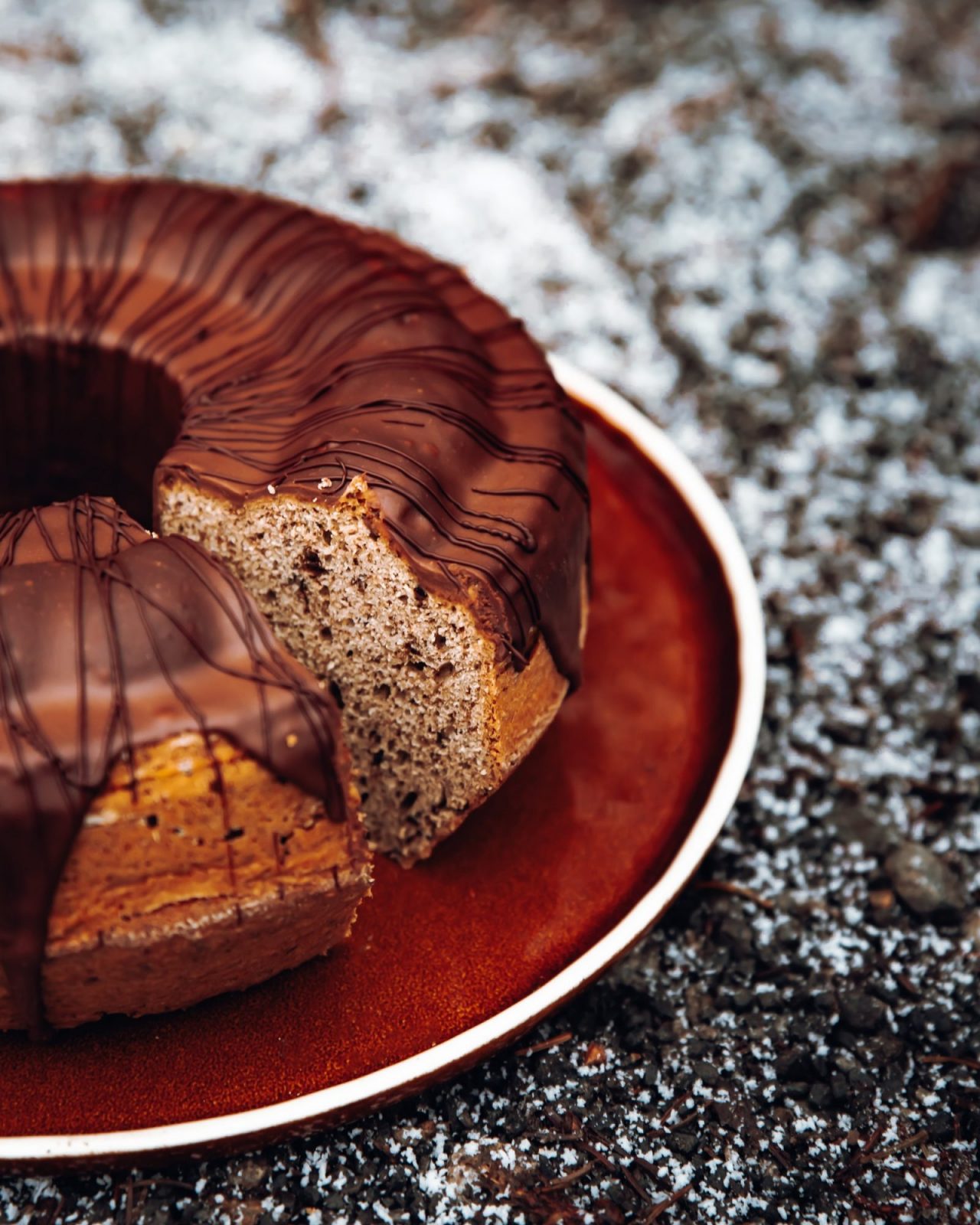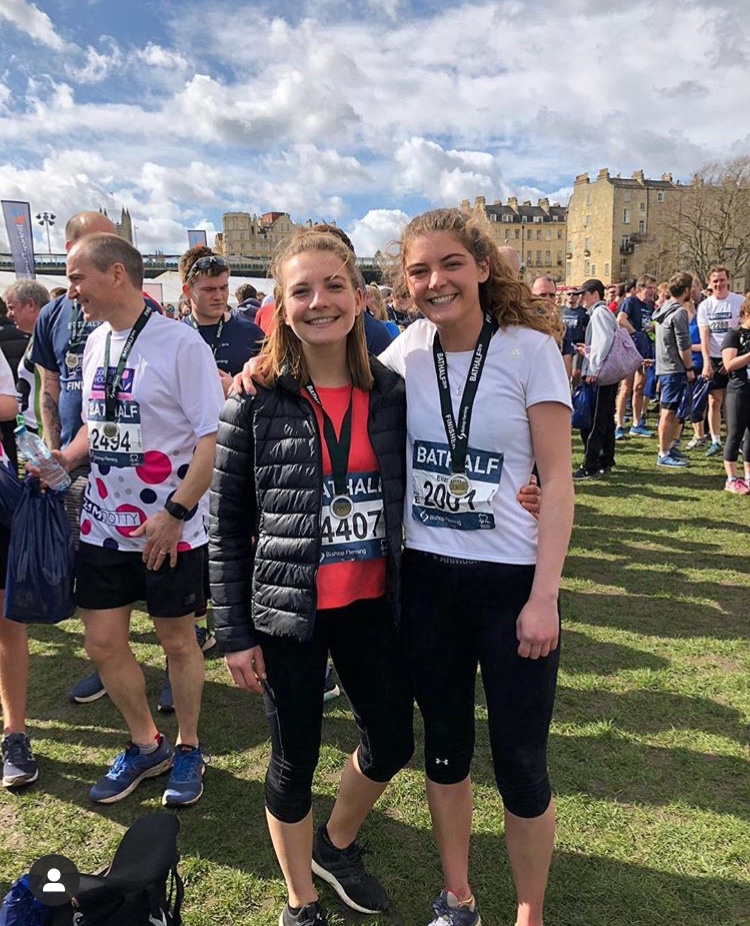Expert tips on sports nutrition and cycling competition
Here at Pedal Taiwan we like to cater for cyclists who like a challenge, but we know that in order to perform at your best you need to fuel your body properly. In order to get our questions answered, what better person to chat to than Danielle Stephens, who has competed in marathons, triathlons and has a Master's degree in Nutrition.
You have competed in multiple triathlons and marathons – How did you get started in competing and what is it that you enjoy about it?
I have competed in both a marathon (Paris) and a triathlon and have another triathlon lined up for 2021. I have always really enjoyed running as a hobby, I used to run multiple times a week whilst at University and it was there where I competed in my first race. My first event was the Bath Half Marathon which is quite a big event in Bath. I decided to enter it when we were in 2nd year, with a few of my friends.
Yet, it wasn’t until the following year that I really started to get into fitness, I started going to the gym and running more, I then decided to enter another half marathon and I think my bug for competing really started here!
I think the thing I enjoy most about competing is being able to push myself to achieve something, I like having something to train for and aim at and I am a little obsessed with seeing how far I can push myself.

You have completed a Master’s in nutrition at University, was this always something you have been interested in or, was it led by your interest in sport?
I have always been very interested in food, mostly eating it!!
I became very interested in nutrition and how best we can fuel our bodies. This happened around the time I started to get really involved in the gym and fitness.
I decided to do a Master’s in Nutrition when I was in my final year at University, I was studying Biochemistry and loved the science. However I didn’t know whether I wanted to have a career in science. I decided to pair my interest and passion for nutrition with my love for science.
I would say that in part my interest and passion for sport definitely influenced my decision in studying a Master’s in Nutrition. It was what got me really into nutrition in the first place.
How do you fit nutrition around your training when you are preparing to compete in an event? What do you usually have for breakfast, lunch and dinner etc?
Whilst I am training for an event I try to eat a well-balanced diet. This includes plenty of complex carbohydrates and protein in each of my meals. For example, for breakfast I would have (and do most days!), porridge topped with banana, peanut butter and blueberries.
For lunch I usually opt for a salad with lots of toppings. These toppings will include a source of protein such as chicken or tuna, complex carbohydrates such as couscous, quinoa or roasted sweet potato. I also make sure I have good fats such as some avocado and lots of veggies. I will also have fruit such as tomatoes, beetroot, sweetcorn and cucumber – the more variety in the toppings the better!
For dinner ,I usually opt for a pasta dish packed with lots of veggies and a source of protein such as salmon or chicken. Alternatively, I will have a curry, again this would be packed with veggies and some sort of protein.
What do you think is the biggest mistake that people make with their nutrition, both in terms of preparing for events and in general?
I think a lot of people are not aware of how important it is to properly fuel their bodies whilst training. This is especially true with endurance events such as marathons and triathlons, where you will be asking a lot of your body. I think the biggest mistake people make is not eating enough food or enough of the right food.
When you are training for an event, you will be expending a lot more energy than normal. Therefore you must increase your energy intake to match this energy expenditure. If you don’t your body will not be able to sustain a high intensity of exercise. This is when athletes can suffer from fatigue and not be performing as well as they should/want to.
It is very important to make sure you are eating enough complex carbohydrates and protein when preparing for an event. You also need to make sure you are consuming adequate amounts of all the micronutrients and vitamins. This is because many of these are important for the correct functioning of our body. This in particular concerns our immune system which will be lower than normal whilst training intensely.
In terms of nutrition in general, I think the biggest mistake people make with their nutrition is the ‘all or nothing approach’, coupled with the demonising of certain nutrients. For example, many people demonise carbohydrates and will not eat them as they believe carbohydrates will make them fat… this is not the case!
I believe we should focus less on what we shouldn’t be eating and focus more on what we should include in our diet. Diets should be inclusive, not restrictive. We need to make sure we eat a well-varied diet with plenty of whole grains, fruit and vegetables and proteins. This will make sure that we consume all the nutrients that our bodies need. And of course when I say well balanced that also means having chocolate and cake when we feel like it and not demonising and restricting these foods, as we should eat for enjoyment!
Are there any myths about nutrition, that you read a lot, that you think the record needs to be set straight on?
Oh my gosh so many!
Firstly, the idea that eating carbohydrates will make us put on weight. This is not true. Obviously if we eat more carbohydrates than the energy, we are expending then you will gain weight, but eating a potato will not make us gain a stone overnight!
Secondly, eating fat will make us fat. Again, this is a big myth! Fat is an essential nutrient for so many processes in our body. There are what people like to describe as ‘good’ and ‘bad’ fats. Bad fats are saturated fats, these are mainly found in animal products such as meat and milk. Good fats are unsaturated fats that are found in plants and fish. These have numerous essential roles in the body such as playing an important role in brain function. For optimal health it’s best to limit our intake of saturated fats and increase our intake of unsaturated fats.
Finally, The idea that sugar is addictive. This is something (and many other nutritionists/dieticians) come across this statement all of the time on social media and in general conversation. This myth stems from the fact that when we eat sugar and sugary foods such as chocolate, it causes a release in the hormone dopamine, our happy hormone, therefore making us feel good. However, there is no scientific evidence suggesting that eating sugar causes physiological dependence; it is therefore not a drug and is not addictive, we are just human and therefore really enjoy the sweet stuff!
Are there any ‘cheat’ foods that you can get away with when training? Are there any foods such as chocolate that actually have nutritional benefits?
As a nutritionist I try not to refer to foods as cheat foods. I believe that this can potentially cause someone to develop a bad relationship with food. We should eat the things we enjoy but obviously bear in mind that some things are best in moderation such as chocolate! They should also be in conjunction with a well-balanced diet.
There have actually been several health claims associated with mainly dark chocolate, such as it may help to protect the heart. This is because dark chocolate contains a plant compound called flavanol. Flavanols have been shown to cause the blood vessels to relax, therefore reducing blood pressure. In both long and short term studies it has been shown to decrease the risk of diabetes and heart disease. Studies have also shown that dark chocolate may be neuroprotective and may offer some kind of protection to neurodegenerative diseases such as Alzheimer’s Disease. Again this is due to the antioxidant and anti-inflammatory effects of flavanols.
We do need to bear in mind that trying to study and investigate the health benefits of a single nutrient in one food and the health outcomes in individuals is very hard. Therefore we do need to be careful when reading these claims.

What would be your advice for any cyclists reading this thinking of branching out into triathlons, is it challenging moving between disciplines?
Just go for it! This was my mindset when I decided to enter my first triathlon. I had always wanted to compete in a triathlon. Yet, I kept putting off training for one and entering one as I was very nervous about the swimming element of a triathlon. The running part for me is simple as that is what I enjoy and I have always enjoyed cycling and had ridden a road bike a few times so again, that didn’t seem too much of a challenge. I hadn’t swam much since swimming lessons, which I stopped doing when I was 11!
I kept talking about entering one, but I kept putting it off. One day I said enough is enough and finally entered one! For me this was the best thing as it meant I had to go and swim and give it a go. Now I love swimming, it’s such a great alternative to running and cycling as it’s such great cardio training but you also simultaneously get to rest your legs.
I think moving between cycling and running is not too challenging, running does use different muscle groups than cycling but basic cardiovascular fitness is there. Like I have mentioned I found swimming the most challenging as it was a form of exercise which I hadn’t done in over 10 years. It obviously uses a completely different set of muscles. Swimming is a great form of cardiovascular cross- training, so in fact, incorporating swimming into a training regime might actually benefit you a lot. This is even if you are not training specifically for a triathlon.
What’s the best way of beating the dreaded mid-ride bonk (going into the red running/ out of energy during an event)? Are there healthier alternatives to energy gels?
Fuelling yourself correctly is probably the best way to avoid this. Hitting the wall (running out of energy) occurs when our body’s glycogen stores have run out. Glycogen is our body’s main storage molecule of energy. Our body can only store up to a certain amount, usually between 500g and 800g. Therefore during long endurance training and races this store can easily run out. It is at this point where we seemingly ‘hit the wall’ and feel like we cannot go on anymore. This usually occurs between 2 and 3 hours for most people if they haven’t taken on any more fuel.
The best way to make sure this does not happen is to make sure you are fuelled sufficiently before training. If you are going out on a long endurance ride or run, make sure you have some snacks handy! Making sure you are hydrated is also very important and can make such a big difference to your performance.
Gels are great if you need that quick burst of energy. Although you have to bear in mind that as soon as you have consumed one gel, you need to consume them every 20 minutes, otherwise you will ‘hit a new wall’ and run out of energy. I tend to use these near the end of a race when I want that quick burst of energy to see me over the finish line.
During a long training ride or run I prefer to have solid food such as an energy bar or flapjack, something with a high carbohydrate content. This to make sure I am replenishing those glycogen stores. The last thing that you should be worrying about is whether the fuel you have chosen for your training or race, be it a gel or an energy bar is unhealthy. Our body will be burning huge amounts of energy and therefore it is very important to keep replenishing those energy stores. So, if you prefer a gel rather than solid food, then go for it!
The best thing to do is try different sorts of food, solid and gels whilst training to find out what you prefer and what sits best with your stomach/digestion as everyone is different!
What’s your favourite event that you have competed in? What are the best memories you have had from competing in marathons/triathlons?
I think my favourite event has to be the Paris Marathon. The atmosphere was so great and having never been to Paris before, it was such a great way to see all the sights. This may sound very strange but I also really enjoyed all the training for it. I really like having structure in my training and each week being able to increase the miles I was running. This was such a great experience to see how my body would cope with a challenge.
The best memories I have from running the marathon is the support from family, friends and strangers! Having people cheer you on as you run past is the best feeling and really motivates you to keep running! I was lucky enough to have my parents and sister come and cheer me on in Pairs which I think made all the difference.
I also really enjoyed my first ever triathlon. I was very very nervous and nearly didn’t get into the water at the beginning!! I am very glad I did get in as I actually ended up loving every minute of it!

Obviously COVID, has stopped anything from going ahead at the moment but are there any events that you have got your eye on to compete in the future?
Yes, unfortunately COVID has disrupted some races I had planned this year. I have a few in mind for next year and I am very excited to get back racing again!
I have a half Ironman in May in Mallorca. I am starting to increase my training load for this, and I am really enjoying the cycling and swimming aspects of the training. Much more than I thought I would!
I am also planning on entering a few local triathlons too, to get some more experience in triathlon racing. I have also entered the London Marathon ballot for next year, so fingers crossed I get a place for that!
So yes, a few things planned, and fingers crossed they will go ahead!